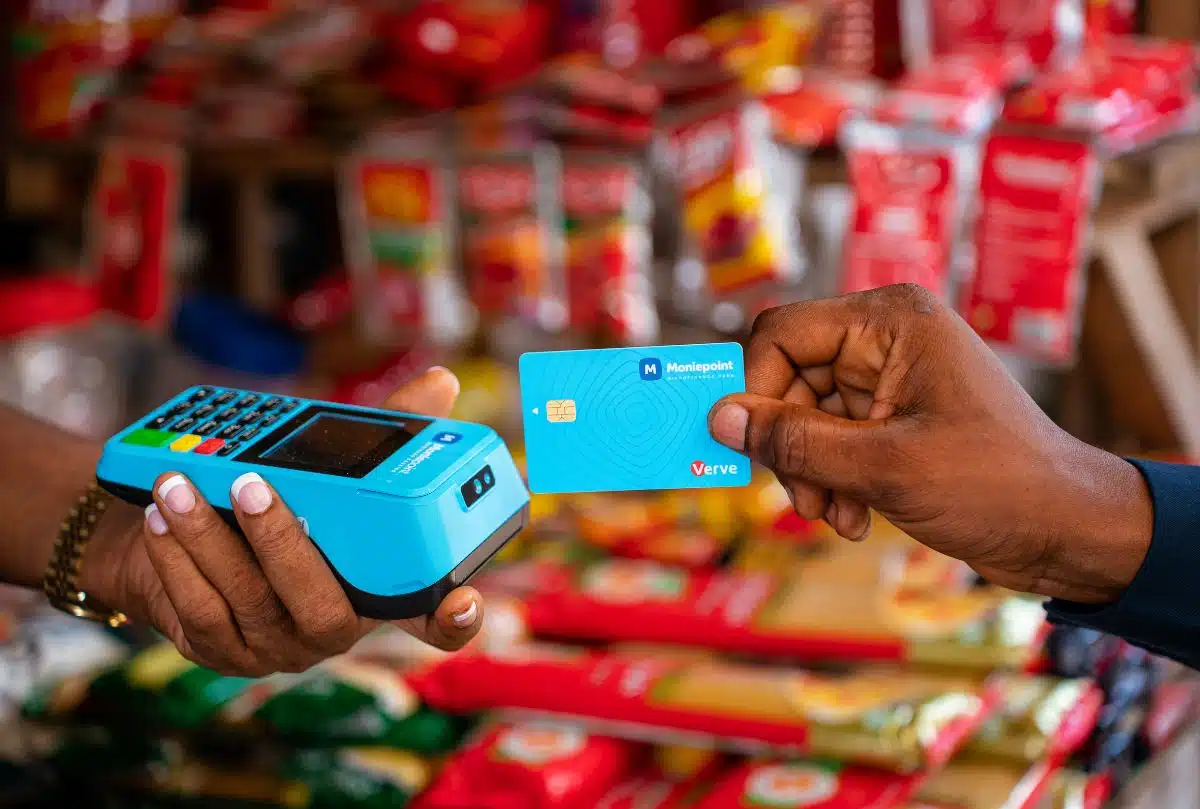When Akinsola Jegede first arrived in the US, he tried to use his debit card to buy a bus ticket. The card was declined, and he assumed it was simply because he was Nigerian.
When he couldn’t send $20,000 in time to take advantage of a business opportunity, he lost the chance. Later, he received $15,000 back due to the devaluation of the naira. The experience left him frustrated and prompted him to consider alternative solutions.
But the final straw was his attempt to send money to a family member who was battling a terminal illness. After failing to deliver it to them on time, he decided to dedicate himself to facilitating high-volume transfers at low transaction rates for professionals.
“I felt like I was in the middle of a lot of payment problems for myself and other people. There was just one problem or the other when it came to payments,” Jegede tells Techpoint Africa.
In 2022, he launched VitalSwap, a platform that enables people to send money across countries, with a model designed to reduce costs.
The VitalSwap model
Jegede explains that, unlike other cross-border payment processors, VitalSwap’s goal is to eliminate middlemen from the currency exchange process.
Typically, cross-border payment companies have middlemen that facilitate the exchange. Although not apparent to the end user, between the sender and the receiver is a liquidity provider or a bank that essentially functions as a middleman.
For example, if an individual or business in Nigeria sends money to the UK, the naira goes to the partner bank of their chosen payment company. Then, the company pays the recipient in pounds from their partner bank in the UK.
This model makes cross-border payments more expensive for the end user because the middleman takes a slice, and the layers of compliance costs add to the markup on the exchange rate. However, the VitalSwap model is different.

Victoria Fakiya – Senior Writer
Techpoint Digest
Stop struggling to find your tech career path
Discover in-demand tech skills and build a standout portfolio in this FREE 5-day email course
“We are trying to cut that away so we can bring in liquidity partners. These are individuals who have a need for currency exchange and who will be able to exchange their currencies at a very near market rate. We tested that model with our MVP, and it was a success. We processed $1,000,000,” Jegede tells Techpoint Africa.
What VitalSwap does is bring together people and organisations with complementary currency exchange needs.
“The effect of this is that the middlemen have been taken out, putting more value in the pocket of all the parties,” Jegede says.
In theory, if an organisation in the US wanted to send $12,000 to Nigeria, instead of using a platform that routes the payment through banks, essentially making it more expensive, VitalSwap’s model allows the sender to effectively swap currency with a person or organisation in Nigeria who needs dollars.
In practice, Jegede clarifies that while there may not always be people waiting to exchange $12,000 on both sides, VitalSwap manages the liquidity pool, ensuring that exchanges are seamlessly facilitated on the backend without the user’s knowledge.
“If a user gets on the platform today, they exchange like they do on every other platform, but the heavy lifting is being done by our matching engine.”
While the company does not have liquidity in the market, Jegede adds that for the model to work, it brings in liquidity partners, such as organisations and other fintechs that have a real need for currency exchange to participate in the market.
What VitalSwap offers
VitalSwap offers users a trusted platform for cross-border payments at a more competitive exchange rate.
Freelancers, business owners, or individuals can send and receive money through its mobile or web application or transact with its virtual dollar debit card.
Individuals can create a virtual dollar debit card for $0.50, fund the card with their local currency, and transact on global platforms.
Businesses can also seamlessly receive payments from customers across Africa by integrating VitalSwap’s checkout solution on their website. With this, customers can pay in their local currency, and businesses can easily receive it in dollars. For these transactions, VitalSwap charges a 2% payment settlement fee.
One of VitalSwap’s key offerings to customers is processing high-volume transfers. Where many competitors may not allow single transfers of up to millions of dollars, VitalSwap allows single transfers of up to $5 million.
“Unlike traditional platforms where users often have to split large transactions into smaller amounts and risk compliance red flags such as structuring, VitalSwap enables single transfers ranging from $5,000 to $5,000,000 in one seamless, compliant transaction,” Jegede says.
He adds that to protect the company from compliance issues resulting from large transactions, the company implements processes to ensure that guidelines are followed properly and any compliance flags are duly addressed.
“We ensure we have experienced professionals in compliance to design our programmes in alignment with regulatory compliance guidelines. For example, our chief compliance officer is from Western Union, where he handled the compliance programme at scale.”
Money and growth
In 2022, VitalSwap launched its MVP to test the model, which processed over $1,000,000 across 18,000 transactions. However, after eight months and 350 active users, its operations were suspended and relaunched in May 2024. Since then, the company has processed over $12 million in transactions.
“We suspended operations because we could not scale without proper licensing that protects customers and the company. And we needed funding to get licensed.”
Following the relaunch, the platform currently has 20,000 users and has raised a pre-seed fund of $300,000 from angel investors and venture capitalists. It currently operates in the US, Nigeria, Canada, and the UK.
Tackling challenges
One of the challenges VitalSwap consistently faces and is tackling as it expands into new markets is licensing.
The company is actively pursuing Money Transmitter Licences (MTLs) across the US. However, as it expands its licence coverage, it is leveraging partnerships with banks and fintechs in Nigeria and the US.
“This hybrid approach allows VitalSwap to support both businesses and immigrants with cross-border money transmission between the US and Africa, particularly Nigeria,” Jegede says.
But, more importantly, he notes that a major problem that the company is likely to face in the future is its lack of liquidity.
“The fact that we don’t own what we sell is a challenge to us. When we first started, it was a big problem. We’d either have a lot of dollars but not enough naira or vice versa.”
With VitalSwap’s apparent value, it is likely to scale and attract more users; however, its liquidity might prove a hindrance as its user base and transaction volume grow.
But Jegede adds that the company has a solution ready.
“A solution which we are already working on is exposing our API so that we can capture more liquidity partners and eventually start working with big banks who will likely become liquidity partners,” Jegede explains.
While this is a viable solution, as VitalSwap expands to more markets, it is likely to face significant liquidity problems. If the company is unable to maintain a balance in liquidity across all markets, it may face situations where there is a demand for a currency but not enough supply, which could harm it.
Looking ahead
VitalSwap’s biggest advantage is its low exchange rate and high volume transfers; however, beyond that, Jegede views the company as an aggregator of exchange rates. He notes that rather than compete with other cross-border payment platforms, VitalSwap can aggregate competitors on its marketplace as liquidity partners and offer customers a range of favourable rates.
Additionally, VitalSwap aims to become a comprehensive payment infrastructure for its customers.
“For example, if someone from Nigeria tries to buy something from the US that will be shipped across to them, we have built a payment rail for them to pay. But what our future looks like is bringing all the other parts of that transaction directly to the user on the same payment rail,” Jegede says.
“So, a user gets on the platform, orders a product, and our system will work with all the partners along the line to get the product to them. You pay us, and we settle everyone else in one single transaction.”










